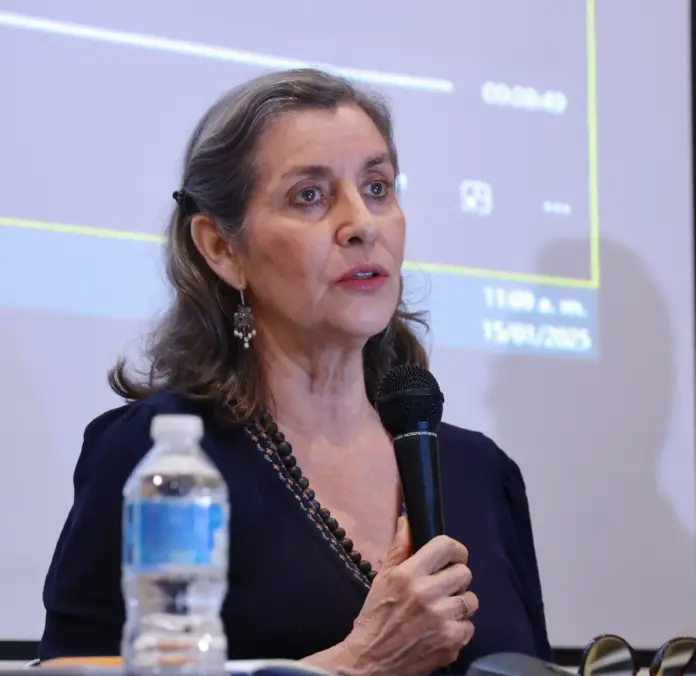Yesterday, the discussion “Mérida, the Yucatan, Expectations and Uncertainties” took place at the “Jorge Zavala Velázquez” auditorium of the “Doctor Hideyo Noguchi” Center, as part of the city’s anniversary celebrations.
The event brought together experts to discuss the challenges and risks associated with Mérida’s rapid urban growth, known as the “city of peace.”
Moderator Mirna Rubí Aguilar Paz opened the debate by emphasizing that urban growth transforms not only the city’s physical landscape but also its essence. Specialists highlighted how disorderly expansion affects the city’s identity and sustainability.
Temozón Norte: An “Invaded” Zone
Anthropologist Roger Cruz Arjona focused on the effects of metropolitan growth, particularly in the Temozón Norte area, which has been “invaded” by real estate developments. These developments have disrupted local social and cultural dynamics and threaten to exhaust Mérida’s natural resources, putting residents’ quality of life at risk.
“The city’s growth follows a logic of infinity and inexhaustibility, endangering natural resources and quality of life,” Cruz reiterated.
Commercialization of Historical Heritage
Dr. María Elena Torres Pérez, an urban development expert, addressed the commercialization of historical heritage and the displacement of communities. She criticized the proliferation of vertical housing, which affects access to basic services like water and electricity and contributes to the loss of public spaces essential for social cohesion.
Torres argued that the lack of urban planning has led to unsustainable development, negatively impacting citizens’ quality of life.
Social Fabric Alterations in Chablekal and Cholul
Anthropologist Dr. Jorge Pacheco Castro warned that urban transformations alter both the territory and the social fabric. He cited examples from communities like Chablekal and Cholul, where traditions and festivities have been displaced by real estate development.
“We do not oppose urban development, but it must be orderly,” Pacheco stated.
He emphasized the importance of public policies that guarantee sustainability for both the present and future, referencing the Brundtland Report’s principles of sustainable development.
Threats to the Yucatan Aquifer
Environmental specialist Dr. Monica Chavez Guzman warned about the dangers to the Yucatan aquifer, crucial for drinking water supply. Urban expansion increases water demand and contaminates wells with dangerous metals like arsenic and lead. The lack of drainage and improper solid waste disposal exacerbate contamination.
Dr. Chavez proposed solutions such as reactivating rainwater harvesting, an ancestral practice that could mitigate water scarcity and promote environmental justice.
Statistics highlight the seriousness of the situation: since 2001, Yucatan has lost 389 hectares of forest cover, a 13% decrease, contributing to loss of biodiversity and increased CO2 emissions.
Dr. Chávez called on governors to fulfill their environmental protection promises and encourage citizen participation in urban planning decisions.
Mérida as a Model of Sustainable Development
Panelists agreed that Mérida has the potential to be a model of sustainable development, but this requires public policies integrating social justice, environmental respect, and a long-term vision. The current growth model risks destroying the city’s essence, making it urgent to rethink Mérida’s future.
Moderator Mirna Rubí Aguilar presented a viral video by engineer Graciela Carrillo, advocating for orderly, fair, and equitable development through effective public policies that respect all citizens’ needs.
The specialists concluded that a city should guarantee access to essential resources like drinking water and housing, protect its cultural and natural heritage, and promote active citizen participation in political decisions. Prioritizing the common good over commercial interests is crucial for achieving development that benefits the entire community without sacrificing citizens’ well-being for private interests.
Source: Diario de Yucatan




